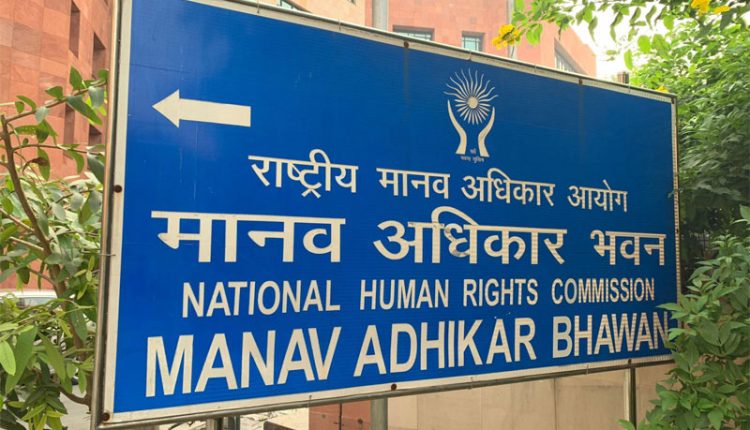NHRC notice is over reported lack of proper access to the education facilities for children in the Sutlej surrounded border areas of Ferozpur district
New Delhi(Kalinga Voice): The National Human Rights Commission, NHRC, India has taken suo motu cognizance of a media report about the plight of students, in Kaluwara village of Punjab, especially the girls, who have to first walk on foot in slushy banks of the river Sutlej then board a Berhi (a wooden boat) and cross the river to walk for another 4 kms along the border with Pakistan before finally reaching to the Government Senior Secondary School in Gatti Rajoke area of the district Ferozpur of the State.
The news report further reveals that Kaluwara is surrounded on three sides by river water and by the border fence on the fourth. It is also stated that during the heavy rain, the river floods fields and homes, forcing the residents to spend days together on their roof tops. The village houses 50 families and has only one primary school. Most of the girls studying in the primary school, drop out after Class-V due to the extreme difficulties in getting to the schools for higher education.
The Commission has observed that the contents of the news report, if true, raise issues pertaining to the apathy of the state authorities towards the Right to Education of the students as well as the Right to Life and Dignity of the people residing in the area. The State has a responsibility to ensure their safety and to safeguard their human rights by providing them an environment to live with dignity.
Accordingly, it has issued a notice to the Government of Punjab, through its Chief Secretary calling for a report along with the action taken report about the steps being taken or proposed to be taken to provide for better and hassle-free access to the students to the school in the area, either by creation of a new school at a nearby place or by providing better access, avoiding the river Satluj/Berhi, while reaching to the school.
Issuing the notice, the Commission has observed that it becomes imperative that the State Government makes it possible for every child to get an access to the education system, without much hindrance or difficulty so that the fundamental significance of the life of an individual can be achieved.
In this context, it also noted the Supreme Court order in Avinash Mehrotra v. UoI, (2009) 6 SCC 398, as well as the introduction of Article 21-A in the Constitution, which makes the State liable to provide free and compulsory education to all the children of the age of six to fourteen years.
The Commission has further noted that the Government of India has been emphasizing upon education to the girls. It has announced and implemented many schemes to provide benefits to the girl children across the country but such news reports indicate that there are many grey still areas, where a lot of work is yet to be done. The poor citizens cannot be left on their fate and to use a Berhi to cross a river daily to reach the school, market or their place of work.
According to the media report, carried on 16th November, 2022, the two girls, who have been attending high school amidst odds, say that sometimes they are the only ones on the Berhi without any boat man, which is maneuvered using an over head cable that is tethered to poles on either ends of the river bank. The girls have to tug at the over head rope with all their might, haul themselves onto the boat and wait for it to steady itself before rowing to the other side. It is also mentioned that sometimes the students have to wait for the Berhi for more than two hours as they have to wait for someone from the other side to row the Berhi towards them. The Berhi is reportedly a common form of water transport in the area, used to ferry, besides people, cattle and vehicles such as bicycle and motor bike even tractors as there is no road to reach the area called Gatti Rajoke.

